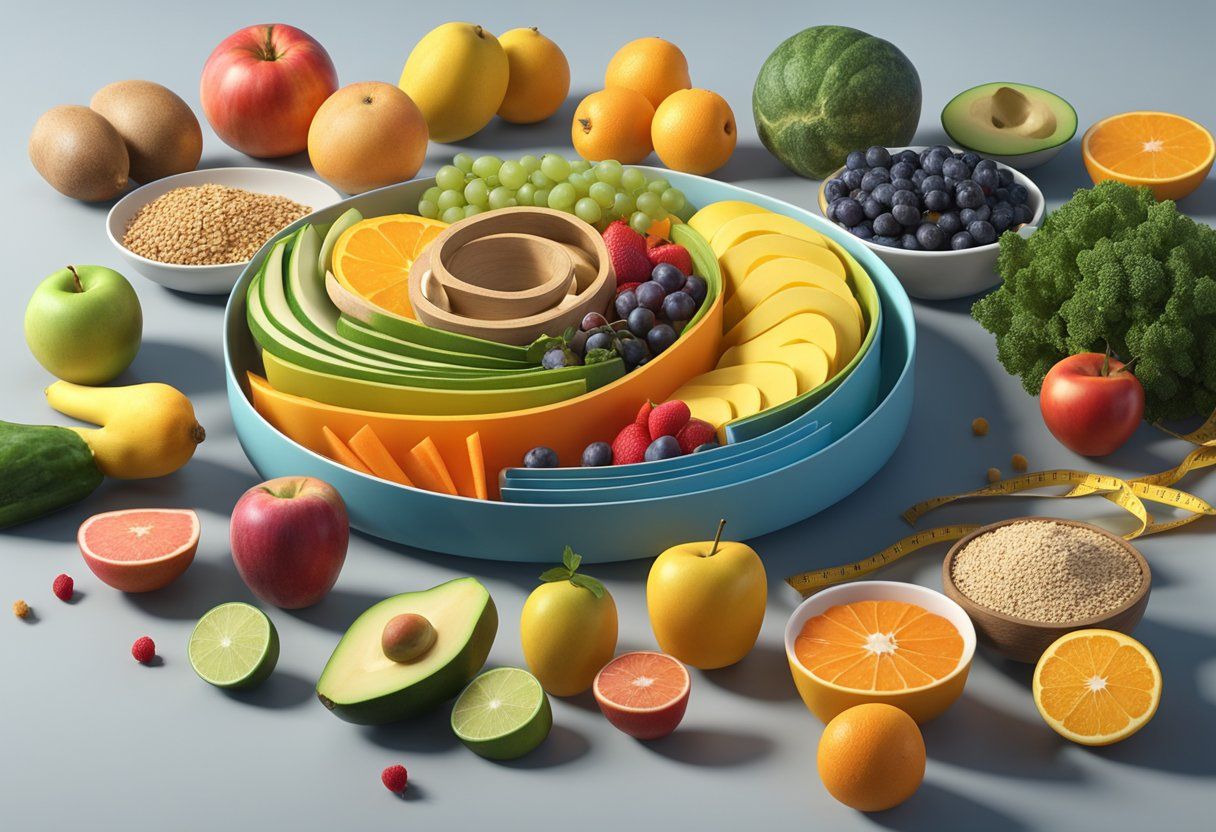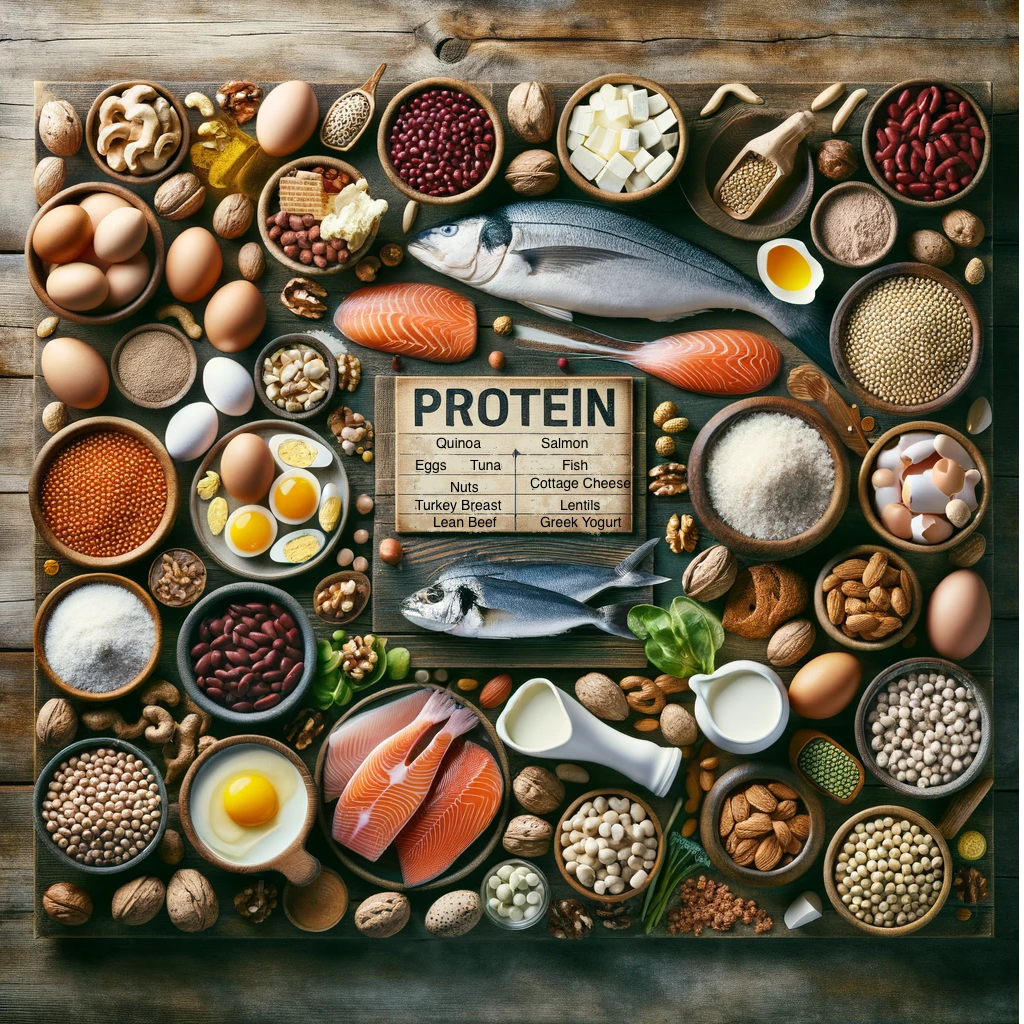If you're looking to lose weight, you've probably heard that protein is an essential part of your diet. But why is that? How exactly does protein help with weight loss? In this article, we'll explore the importance of protein in weight loss and how it can help you achieve your goals.
Firstly, protein is an important nutrient for building and repairing muscle tissue. When you're trying to lose weight, you want to lose fat, not muscle. Consuming enough protein can help preserve your muscle mass while you're in a calorie deficit, which is essential for maintaining a healthy metabolism. Additionally, muscle tissue burns more calories at rest than fat tissue, so having more muscle can help you burn more calories overall.
Protein and Metabolic Rate
Protein is an essential macronutrient that plays a crucial role in weight loss. One of the main ways that protein helps with weight loss is by increasing your metabolic rate.
Check out the protein and weight loss basics in this video
Thermic Effect of Food
The thermic effect of food (TEF) refers to the energy your body uses to digest, absorb, and metabolize the nutrients in the food you eat. Protein has a higher TEF than carbohydrates or fat, which means that your body uses more energy to digest and metabolize protein than it does for other macronutrients.
Research has shown that consuming a high-protein diet can increase your metabolic rate, which can help you burn more calories throughout the day. In fact, one study found that increasing protein intake from 15% to 30% of total calories led to a 14% increase in metabolic rate.
In addition to increasing your metabolic rate, protein can also help you feel fuller for longer periods of time. This can help you consume fewer calories throughout the day, which can lead to weight loss over time.

Check out our other articles for weight loss
To maximize the weight loss benefits of protein, it's important to choose lean protein sources such as chicken, fish, tofu, and legumes. These foods are low in calories and high in protein, which can help you stay full and satisfied while also promoting weight loss.
Incorporating protein into your diet can help increase your metabolic rate and promote weight loss. By choosing lean protein sources and including protein in every meal, you can maximize the weight loss benefits of this essential macronutrient.
Protein, Satiety, and Appetite Control
Hunger Hormones
One of the main reasons why protein is important for weight loss is that it can help regulate your hunger hormones. Ghrelin is a hormone that is responsible for stimulating your appetite, while leptin is a hormone that signals to your brain that you are full. When you consume protein, it can help increase the levels of leptin in your body, which can help reduce your appetite and prevent overeating.
How to feel fuller by eating more protein
Feeling of Fullness
Protein can also help you feel fuller for longer periods of time. This is because protein takes longer to digest than carbohydrates or fats. When you consume protein, it can help slow down the emptying of your stomach, which can help you feel full for a longer period of time. This can help prevent overeating and snacking between meals.
Consuming protein can also help you preserve muscle mass while losing weight. This is important because muscle mass can help increase your metabolism, which can help you burn more calories throughout the day. Additionally, protein can help reduce the loss of muscle mass that can occur during weight loss.
Protein can be an effective way to control your appetite and promote weight loss. By including protein in your meals and snacks, you can help regulate your hunger hormones, feel fuller for longer periods of time, and preserve your muscle mass.
Protein and Muscle Preservation During Weight Loss
When it comes to weight loss, many people focus solely on reducing their calorie intake and increasing their physical activity. However, it is essential to consider the role of protein in the weight loss process. Adequate protein intake is crucial for preserving muscle mass during weight loss.
Preventing Muscle Loss
When you are in a calorie deficit, your body may turn to your muscles for energy, leading to muscle loss. However, consuming enough protein can help prevent this from happening. Protein provides the building blocks your body needs to repair and maintain muscle tissue, and it can also help to reduce muscle breakdown during weight loss.
Promoting Muscle Growth
In addition to preserving muscle mass, protein can also help promote muscle growth during weight loss. Resistance training, such as weight lifting, is essential for building muscle, but consuming enough protein is also crucial.

Protein contains essential amino acids, which are the building blocks of muscle tissue. Consuming protein after a workout can help stimulate muscle protein synthesis, the process by which your body builds new muscle tissue. Additionally, consuming protein throughout the day can help provide your body with a steady supply of amino acids for muscle growth and repair.
Enough protein is essential for preserving muscle mass and promoting muscle growth during weight loss. Aim to consume at least 0.8 grams of protein per pound of body weight, and consider increasing your protein intake if you are engaging in resistance training.
Protein Quality and Weight Loss
When it comes to weight loss, protein is an essential nutrient that can help you achieve your goals. However, not all proteins are created equal. The quality of the protein you consume can have a significant impact on your weight loss success.
Animal vs Plant-Based Proteins

Animal-based proteins, such as meat, fish, and eggs, are considered to be high-quality proteins. These proteins contain all nine essential amino acids that your body needs to function properly. They are also easily digestible, which means that your body can quickly absorb and use the protein.
Plant-based proteins, on the other hand, are often considered to be lower quality than animal-based proteins. This is because most plant-based proteins do not contain all nine essential amino acids. However, by combining different plant-based protein sources, such as beans and rice, you can create a complete protein that contains all essential amino acids.
When it comes to weight loss, both animal and plant-based proteins can be beneficial. Animal-based proteins can help you feel full for longer periods, which can reduce your overall calorie intake. Plant-based proteins can also be a great option for weight loss, as they are often lower in calories and fat than animal-based proteins.
The quality of the protein you consume can have a significant impact on your weight loss success. While animal-based proteins are considered to be high-quality, plant-based proteins can also be a great option for weight loss. By incorporating a variety of protein sources into your diet, you can ensure that you are getting all of the nutrients your body needs to achieve your weight loss goals.
Conclusion
Incorporating protein into your weight loss plan can be a game-changer. By consuming adequate amounts of protein, you can boost your metabolism, reduce your appetite, and preserve muscle mass.
Remember to also monitor your overall calorie intake and engage in regular physical activity to achieve your weight loss goals. A well-rounded approach that includes protein can help you achieve sustainable weight loss and improve your overall health. By making sure you consume enough protein, you can increase your chances of success and improve your overall health.
Until Next, Stay Vibrant!
Olivia





